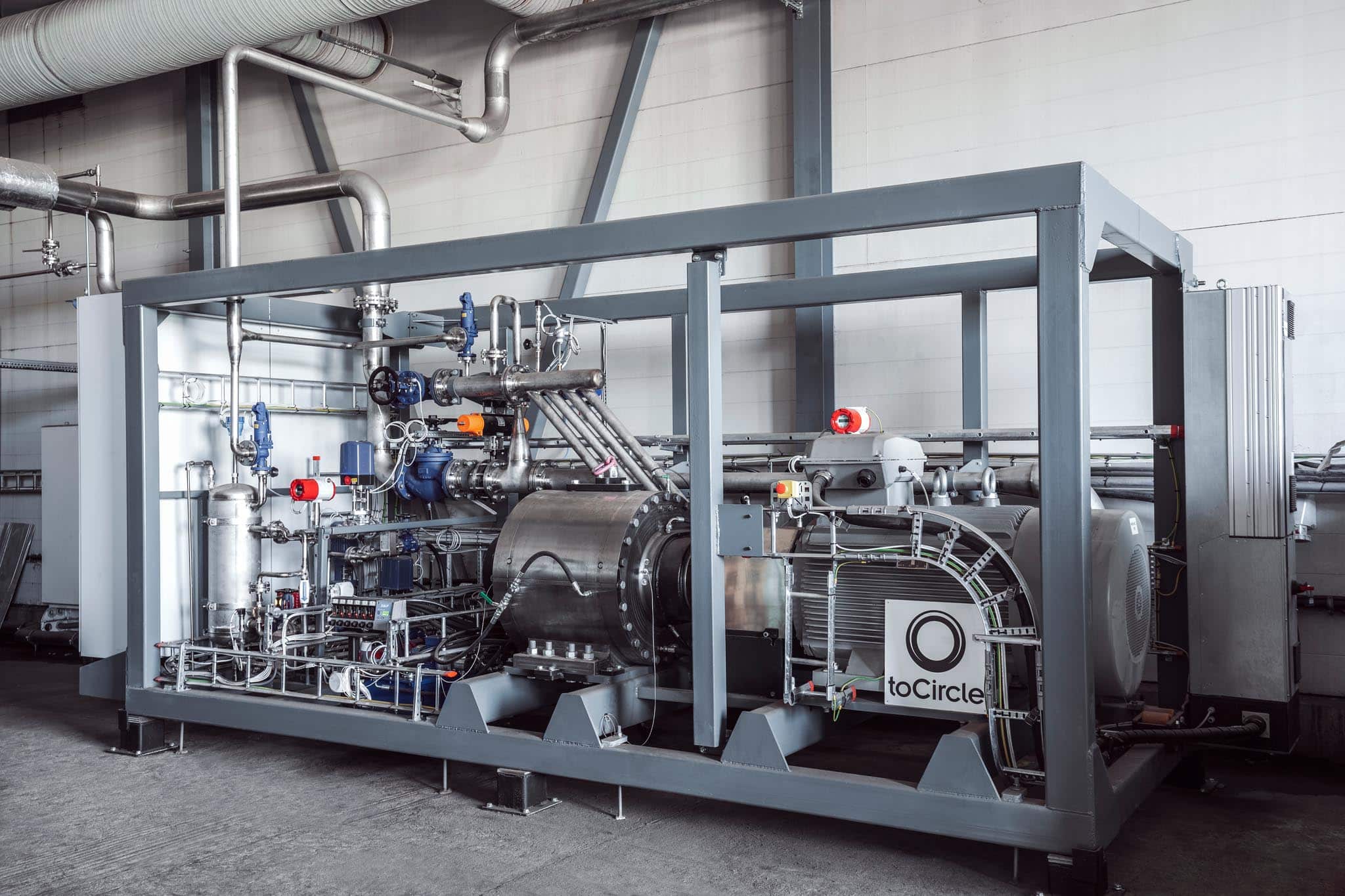Our full-scale pilot project with Scanship , part of Vow ASA, demonstrates that upgrading and moving heat is more effective than producing it! In Lindum’s waste management site, located in Drammen, 40 km Southwest of Oslo, biomass is converted into biochar. Scanship provides advanced technologies to make it happen. Before its thermal decomposition in the absence of oxygen (pyrolysis), the biomass is dried and comes out of this first stage in the form of pellets. The drying process requires superheated steam at 160°C produced by a fossil fuel-fired steam generator. 900 kWh worth of heat are needed to evaporate a ton of water from the wet organic waste. An energy-intensive and environmentally unfriendly process.
Tocircle’s open-loop heat pump solution, also called MVR (Mechanical Vapor Recompression), is key to significantly improve energy efficiency while drying the biomass. This compact, one-stage compression solution (shown below) includes Tocircle’s NextGen compressor, an oil-free, multiphase rotating machine with low sensitivity to impurities. It recovers waste steam at 100°C from Scanship’s dryer and compresses it up to 6 bara, equivalent to 160°C, before transferring the heat back to the process. Once the heat circulation reaches a stable state, the steam generator is shut down and Tocircle’s MVR solution becomes the only heat source. There is no longer any need to burn fossil fuel. Such achievement should allow a total energy saving up to 75% at the end of the pilot project. Waste heat recovery using suitable technology is definitely a low-hanging fruit to cut CO2 emissions in energy-intensive industries.

